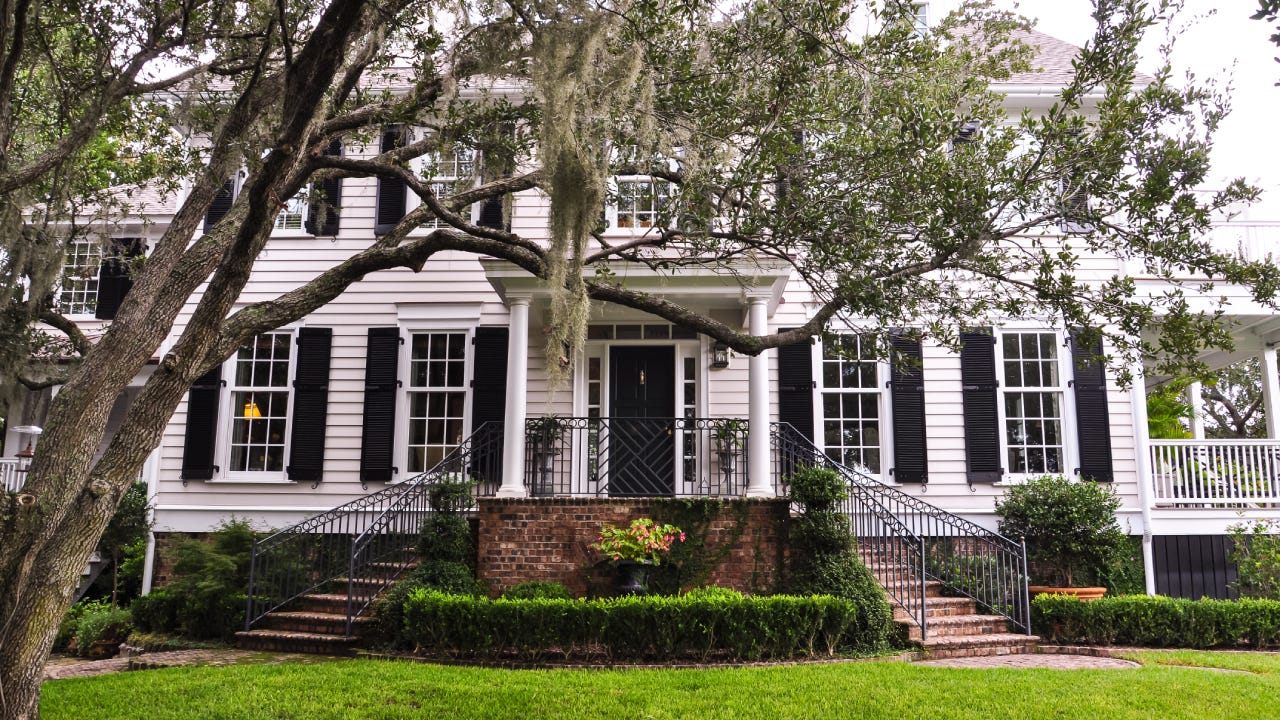Closing costs in Georgia

You’ve found your dream home in Georgia, negotiated a competitive price and are ready to close on the deal. Or maybe you’ve found your dream job in another state, and you’re in contract to sell your Georgia home. Either way, you’ll need to start thinking about closing costs: the various expenses that you’ll owe when the sale is finalized. Here’s what to know about closing costs in the Peach State.
How much are closing costs in Georgia?
On average, closing costs in Georgia run 1.3 percent of the home’s sale price, according to data from CoreLogic’s ClosingCorp. That’s pretty on-par with its neighbors: Alabama’s rate is 1.4 percent, and South Carolina’s is 1.2 percent.
Data from Redfin shows that the median home price in the state in August 2023 was $372,300. So typical closing costs in the state would run about 1.3 percent of that, or $4,840. Prices vary greatly depending on your location, though. The median sale price in Atlanta was $416,500, for example, which would be $5,414 in closing costs; whereas in Macon, with a median of just $190,995, it would be $2,483.
Who pays closing costs in Georgia, buyers or sellers?
As is the case all over the country, buyers and sellers both pay closing costs of some kind here. The state of Georgia requires a real estate attorney to oversee a home closing, and your legal fees will be part of your closing costs. The structure and amount of certain other expenses also vary by state — here’s a breakdown of how it works in Georgia.
Closing costs for buyers
When you buy a house, most of your closing costs will be connected to your mortgage loan. These can include:
- Lender-related fees: Lenders typically charge fees to process your application, check your credit, originate your loan and more.
- Mortgage points: If you choose to purchase mortgage points to reduce the interest rate on your loan, you’ll pay about 1 percent of the loan amount per point, and each point will lower the rate by 0.25 percent.
- Home appraisal: Your lender will require a professional home appraisal to verify that the home is worth at least the amount it’s loaning you.
- Home inspection: Separate from the appraisal, it’s smart (but not required) to pay for a home inspection to identify any structural or safety issues the home may have. If major repairs are needed, you may be able to renegotiate the home price or get the seller to pay for them.
- Title insurance and search: In Georgia, buyers typically pay for a title insurance policy for both themselves and the lender. (However, this can be negotiated.) This protects against any issues the home’s title may have. You’ll also need a title search to check for liens or encumbrances on the home.
- Prepaids: Your lender may require you to prepay several months’ worth of property taxes and homeowners insurance premiums when you close on the sale. The funds are then held in escrow and disbursed as the payments come due.
Closing costs for sellers
Sellers are typically responsible for fewer closing costs than buyers, but they pay more in aggregate. That’s because sellers are on the hook for real estate commissions, the most expensive closing cost in a real estate transaction. These run between 5 and 6 percent of the home’s sale price — on a median-priced $372,300 Georgia home, 6 percent is more than $22,000. Other closing costs for sellers can include:
- Transfer taxes: The seller typically pays Georgia’s real estate transfer tax, which is billed at a rate of $1 for every $1,000 in home value.
- Title-related fees: These are negotiable, and sellers are sometimes responsible for paying them.
- Outstanding property taxes and HOA fees: Your tab for any unpaid property taxes or HOA fees on closing day will have to be settled.
- Existing mortgage payoff: If you have an outstanding balance on your home’s mortgage, you’ll need to pay it off when you sell the house. The outstanding amount is typically deducted from the sale price and wired to the mortgage company (which may incur an additional fee).
- Seller concessions: If you agree to any concessions, such as paying for a needed repair, this cost is usually subtracted from the sale price at closing.
Lowering your closing costs in Georgia
Many typical closing costs are negotiable. If you’re a seller, that includes your biggest expense: Realtor commissions. On a median-priced $372,300 Georgia sale, the difference between a 5 percent commission and a 6 percent one is more than $3,700 — a significant savings.
Buyers, and especially first-time buyers, should see if they qualify for one of Georgia’s homebuyer assistance programs, which can help make a dent in your homebuying costs. You may be able to negotiate other costs as well, depending on market conditions: The seller may be willing to shoulder some of your costs in order to close the deal.
Find a local real estate agent
Working with an experienced local real estate agent is key for guiding both homebuyers and sellers to a smooth transaction. No matter which side of the transaction you’re on, ask for recommendations from friends and family, check online reviews, and look for yard signs and ads in your neighborhood. Interview several candidates first to find someone who you feel comfortable with and trust.
FAQs
-
Closing costs in Georgia average 1.3 percent of a home’s sale price (not including agent commissions), according to data from ClosingCorp. The median home price in the state, per Redfin, is $372,300, which would make closing costs on a median-priced home $4,840.
-
Realtor commissions are the most expensive part of closing costs. Sellers cover this expense, which usually totals 5 to 6 percent of the home’s sale price. On a median-priced $372,300 Georgia home, 6 percent comes to $22,338.
Why we ask for feedback Your feedback helps us improve our content and services. It takes less than a minute to complete.
Your responses are anonymous and will only be used for improving our website.






